-
Tipo
-
CategoriaColori
- View All Colours
Colori
-
Aiuto e supporto
- Domande Frequenti
- Produzione Su Misura
- Risorse
- Privacy
Aiuto e supporto -
La nostra Azienda
- Cosa facciamo
- Contatto
- Blog
La nostra Azienda -
Nostri Marchi

EP74
earth positive 50/50 recycled tote bag
EP 2025 Collection
- ONE SIZE
Plain weave 5 oz / 170 g
-
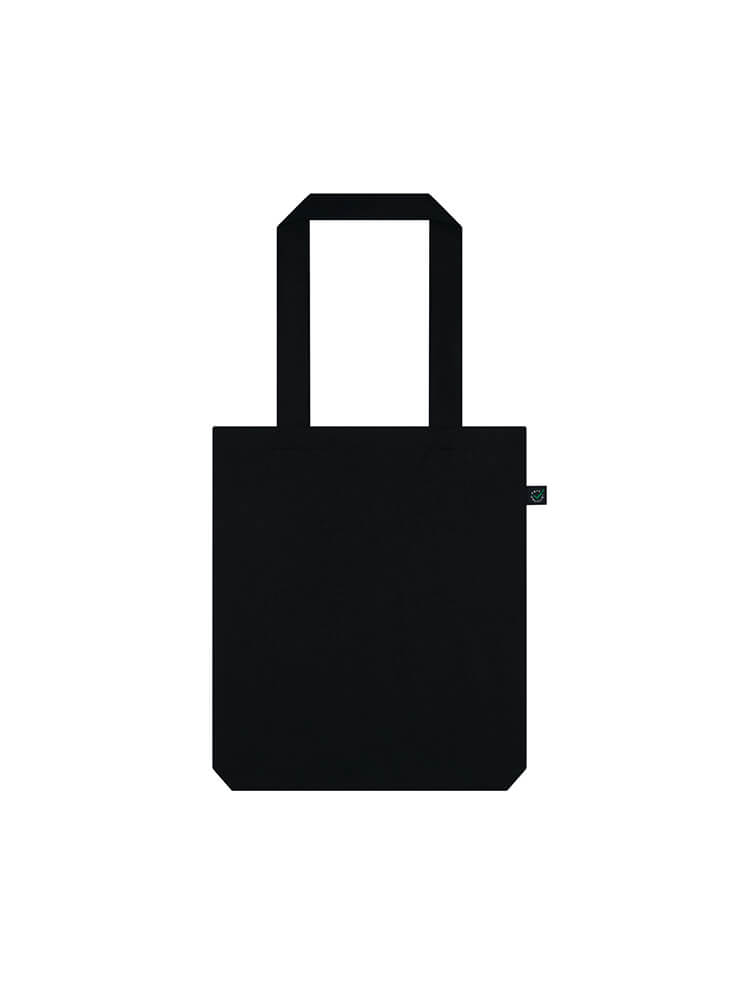
BL - Black
-
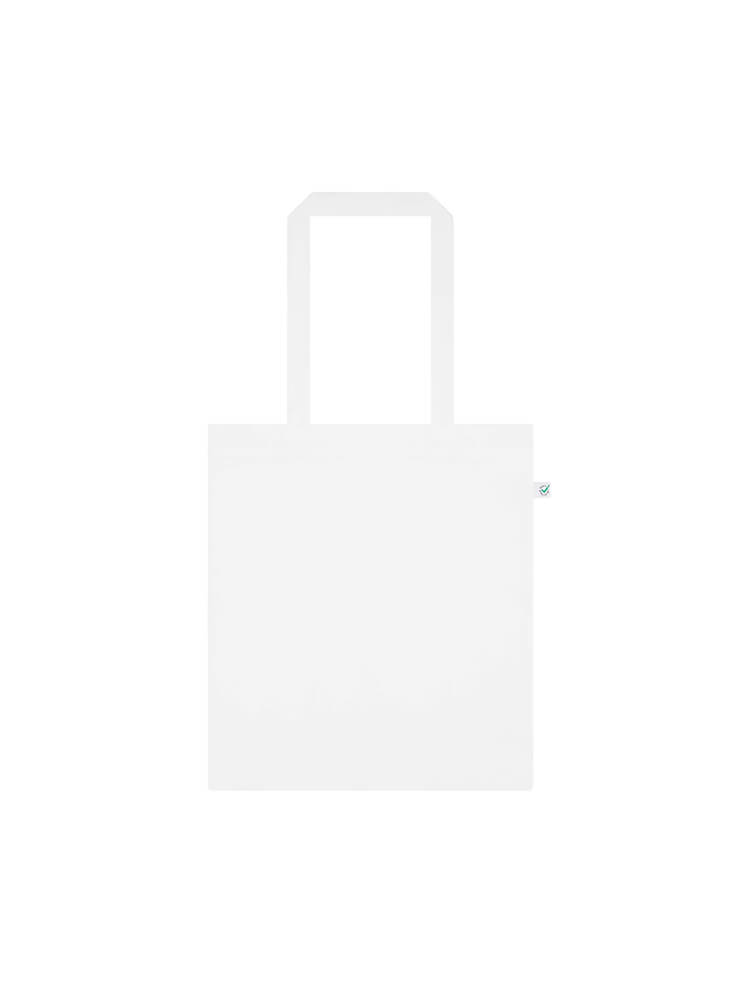
WH - White
-
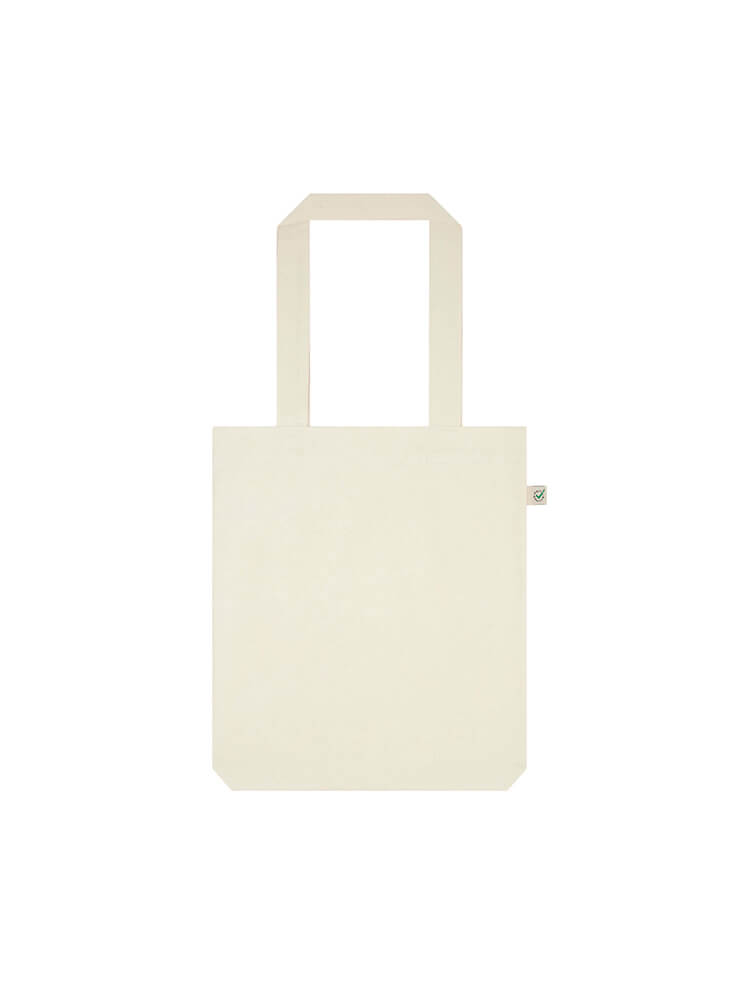
NL - Natural (Undyed)
-
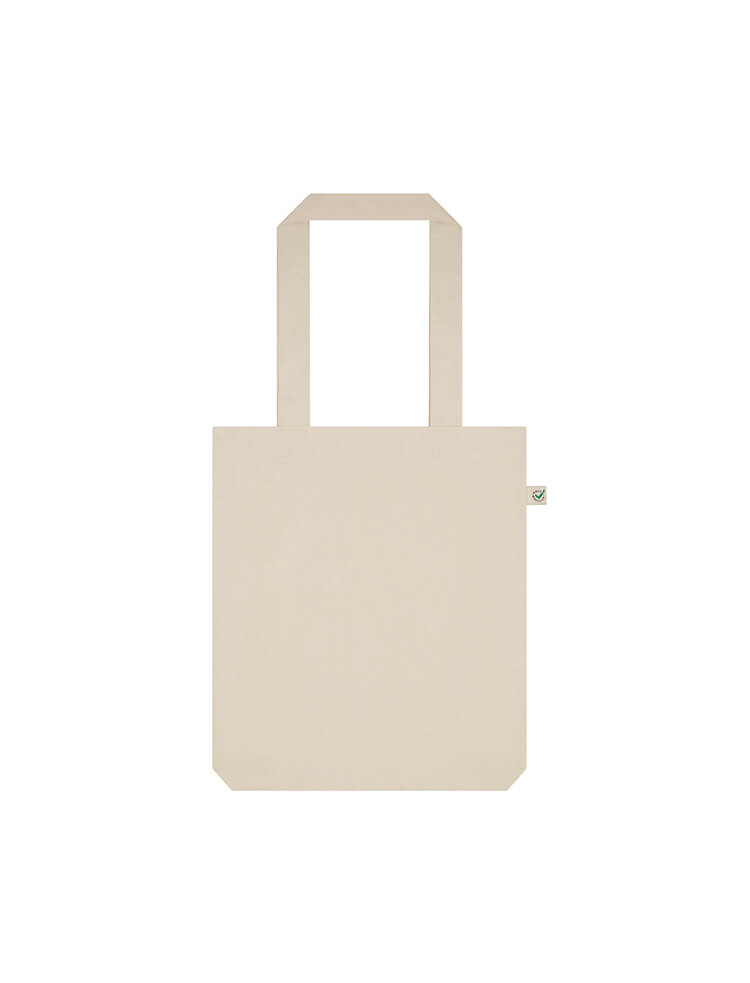
SA - Light Beige (Sand)
-
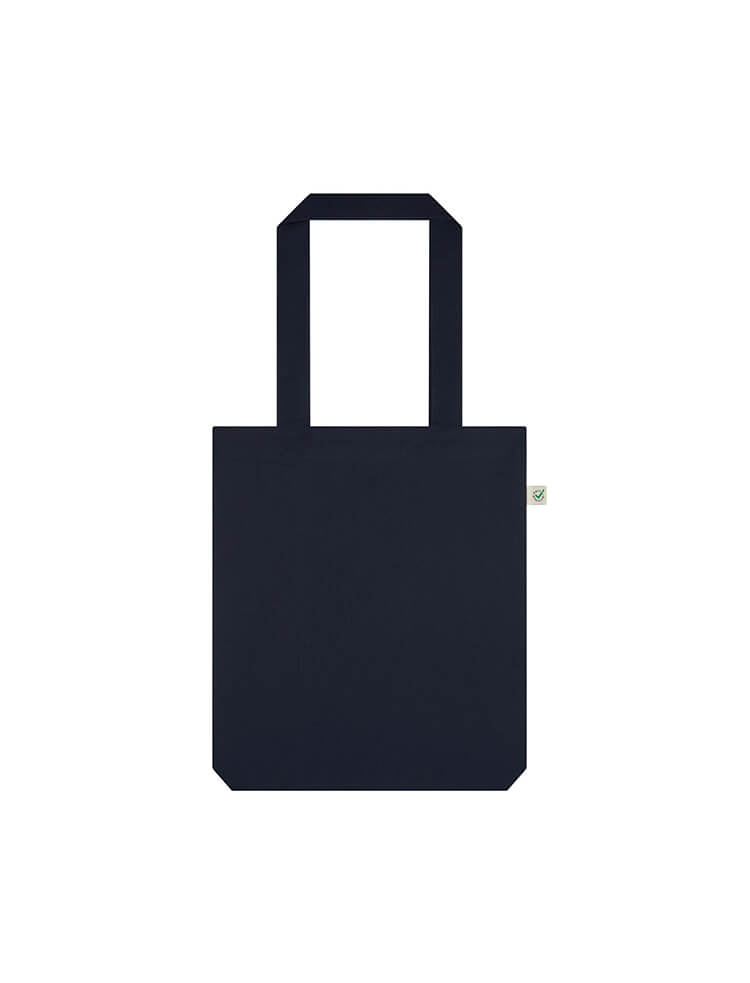
FRNA - French Navy
-

BD - Blue Dusk
-
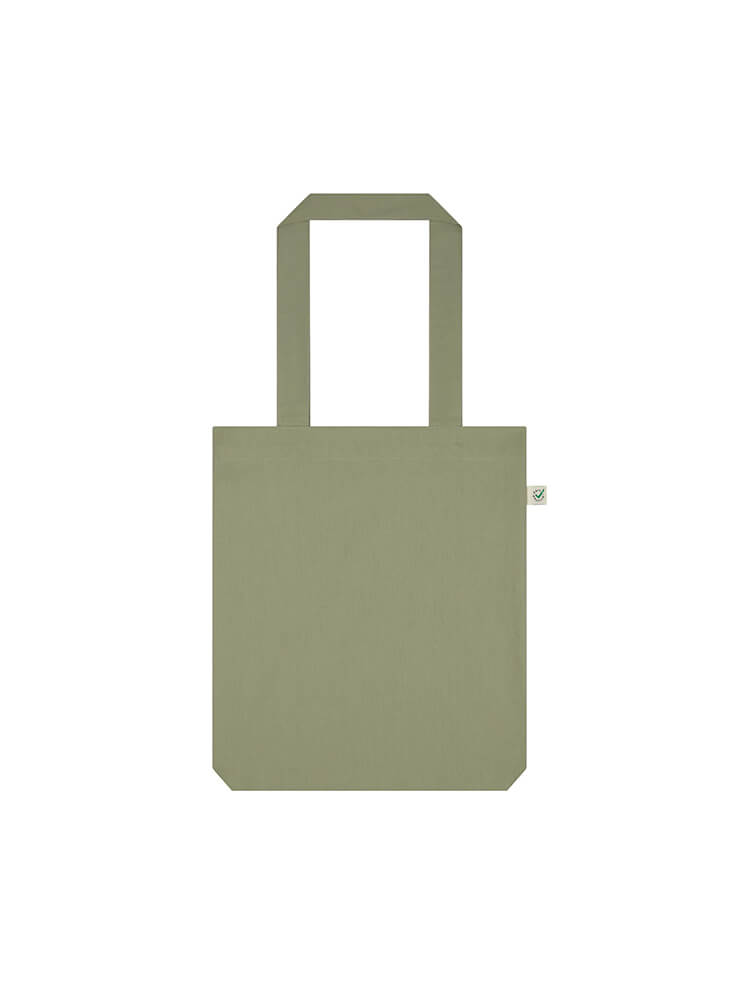
PGR - Light Olive (Pistachio)
-

IG - Ink Grey
50% Cotone coltivato biologicamente riciclato pre-consumo 50% Organic Cotton

L'obiettivo di questo standard è garantire la tracciabilità e l'integrità delle materie prime durante tutte le fasi di produzione.
L'OCS raggiunge questo obiettivo controllando la presenza e la quantità di materiale organico nel prodotto finale. Attraverso la certificazione, fornisce un solido sistema di catena di custodia dalla fonte della materia prima organica al prodotto finale.
Lo standard prevede due diversi tipi di certificazione:
- OCS-100; viene utilizzato solo per prodotti contenenti il 95% o più di materiali organici.
- OCS-BL (misto); Viene utilizzato per prodotti contenenti un minimo del 5% di materiali organici miscelati con materie prime convenzionali o sintetiche.


EarthPositive is the low carbon footprint apparel.
Climate Neutral
EarthPositive Apparel is 100% organic with 90% Reduced CO2
The carbon footprint has been calculated in accordance with BSI PAS2050 methodology, and certified by the Carbon Trust.
The 90% reduction has been achieved by a combination of low-impact organic farming, efficiency in manufacturing and transportation, and the use of renewable energy instead of the fossil fuel based grid electricity.
It has been calculated that a single EarthPositive T-shirt saves around 7 kilograms of CO2, whereas a hooded sweatshirt saves up to 28 kgs of greenhouse gases. These are actual reductions achieved in the manufacturing, without any carbon offsetting.
Click here to see the CO2 values of all our products.
Carbon Footprinting
The Carbon Footprint of a product is the total the amount of CO2 and other greenhouse gases emitted as part of a product's manufacture, distribution, use and disposal. Greenhouse gases (GHGs) are so called because they trap heat in the Earth's atmosphere and keep the planet warm. The main gases are carbon dioxide (CO2), methane and nitrous oxide.
In January 2008, Continental Clothing Co. became the first brand in the world to calculate the carbon footprint and place the Carbon Reduction Label on textile products.
As a Business-to-Business supplier of ready-to-print apparel, we have calculated the carbon footprint of all the products in the EarthPositive range from the cotton field, through processing, manufacturing, transport, up to the point of our distribution warehouses.
The Carbon Reduction Label
In March 2009 Continental Clothing Co. launched the world's first Carbon Reduction Label in retail fashion. The EarthPositive footprint labelled clothes went on sale through ethical retailer Ascension decorated with organic print designs. This was the culmination of two years of work with the Carbon Trust to develop a methodology for assessing the carbon footprint of a cotton product from the field through manufacturing, screen-printing, retail distribution, consumer use to the disposal of the garment at the end of its useful life.
Lord Hunt, Minister for Sustainable Development and Energy Innovation and Deputy Leader of the House of Lords said:
"Continental Clothing's Carbon Footprint label is an innovative idea as part of the Defra-coordinated Sustainable Clothing Action Plan. The label is a great way to give consumers clear information about the environmental impact of their clothes throughout their lifecycle - from manufacturing right through to washing and disposal - so they can be confident in the sustainability of their clothing choices."
UK Department of the Environment Food and Rural Affairs (DEFRA), Sustainable Consumption and Production Programme; Sustainable Clothing Roadmap Case Study: Continental Clothing Co. (Jan 2011):
"When Continental Clothing Company set out to create the 'perfect t-shirt' the aim was to consider all the impacts on the workforce, local economy, environment and climate change, whilst delivering a commercially viable and desirable product offering on a mass scale. The guiding principles were the complete traceability and transparency of the supply chain, and best practice at every stage."
Continental Clothing became a pilot partner with the Carbon Trust's product footprinting and labelling programme, working towards the development of the footprinting methodology for textile products. The company then extended the calculations to include screen-printing, mail-order retailing, consumer use and disposal, thus completing the first full life cycle analysis using the PAS2050 Carbon Footprint methodology.
The footprinting study and analysis pinpointed the GHG hotspots throughout the manufacturing process, from choice of fibres, fabric and garment construction, through to the wet processing, accessorising, screen printing, to packaging and transportation /distribution. The study provided vital information to the designers, logistics managers and marketers, in order to effectively control and reduce the impact on climate change.
The process achieved a 90% reduction in carbon footprint compared to an identical product manufactured using conventional energy sources – the T-shirt carbon footprint was reduced from 7kg CO2e down to700g CO2e.

Continental Clothing Co. products displaying the symbol are certified under GRS by the Control Union Certifications, licence CU 828402.
The Global Recycle Standard is an international, voluntary, full product standard that sets requirements for third-party certification of recycled content, chain of custody, social and environmental practices, and chemical restrictions.
The GRS is intended to meet the need of companies looking to verify the recycled content of their products (both finished and intermediate products) and to verify responsible social, environmental, and chemical practices in the production of these products.
The objectives of the GRS are to define requirements to ensure accurate content claims, good working conditions, and that harmful environmental and chemical impacts are minimized.
The GRS addresses the flow of products within and between companies, and covers manufacturing, storage, handling, and shipping. The GRS applies to the supply chain, including all owners up to the final seller in the last B2B transaction.
Certification to the GRS is valid for one year and subject to annual renewals.


As more and more people vow never to clothe themselves in cruelty, retailers and designers are meeting the demand for animal-friendly clothes in style.
Although you can easily find fashionable animal-free products in many high-street stores, some companies go further, either by ensuring that everything they sell is 100 per cent vegan or by clearly sign-posting their vegan products. The “PETA-Approved Vegan” logo is a way of recognising these progressive compassionate businesses – and helping ethical consumers identify where to shop with confidence, safe in the knowledge that they’re not supporting the exploitation of animals.
Check the listing of brands HERE
About PETA
The People for the Ethical Treatment of Animals (PETA) Foundation is a UK-based charity dedicated to establishing and protecting the rights of all animals.
Like humans, animals are capable of suffering and have interests in leading their own lives; therefore, they are not ours to use – for experimentation, food, clothing, entertainment or any other reason. PETA and our affiliates around the world educate policymakers and the public about cruelty to animals and promote an understanding of the right of all animals to be treated with respect.
https://www.peta.org/about-peta/contact-peta/

Continental Clothing Co. products have been tested and certified under OEKO-TEX® Standard 100 Class I Annex 6 by Shirley Technologies in England.
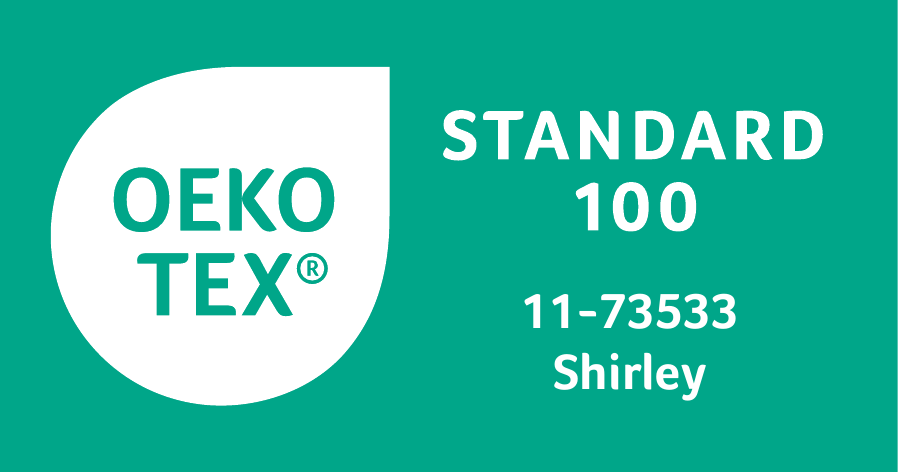
The OEKO-TEX® Standard 100 is an independent testing and certification system for textile raw materials, intermediate and end products at all stages of production.
The testing for harmful substances always focuses on the actual use of the textile. The more intensive the skin contact of a product, the stricter the human ecological requirements to be met. The Continental Clothing certificate meets Class I criteria for textile items for babies and toddlers up to 3 years, the highest of the four classes of certification.
The requirement for certification of textile products according to OEKO-TEX® Standard 100 is that all components of an item have to comply with the required criteria without exception – that means in addition to the outer material also sewing threads, linings, prints etc. as well as non-textile accessories such as buttons, zip fasteners, rivets etc.
On the basis of its comprehensive and strict catalogue of measures, with several hundred regulated individual substances, the STANDARD 100 by OEKO-TEX® takes account of:
- Important legal regulations, such as banned Azo colourants, formaldehyde, pentachlorophenol, cadmium, nickel, etc.
-
Numerous harmful chemicals, even if they are not yet legally regulated.
-
Requirements of Annexes XVII and XIV of the European Chemicals Regulation REACh as well as of the ECHA SVHC Candidate List insofar as they are assessed by expert groups of the OEKO-TEX® Association to be relevant for fabrics, textiles, garments or accessories. Discussions and developments that are considered to be relevant are taken into account as quickly and effectively as possible through updates to the STANDARD 100 by OEKO-TEX® requirements.
-
Requirements from the US Consumer Product Safety Improvement Act (CPSIA) regarding lead.
-
Numerous also environmentally relevant substance classes
Confidence in Textiles – that has been the motto of the independent testing for harmful substances according to OEKO-TEX® Standard 100 for textile products of all types which pose no risk whatsoever to health since 1992.
The OEKO-TEX® label indicates the additional benefits of tested safety for skin-friendly clothing and other textiles to interested end users. The test label therefore provides an important decision-making tool for purchasing textiles.
Perché non vedo i prezzi?
Siamo un'azienda all'ingrosso e non vendiamo al pubblico.
A causa della natura degli acquisti all'ingrosso, quantità elevate influenzano il prezzo di ciascun articolo rche è disponibile ai nostri clienti.
Se hai una attività commerciale e vuoi acquistare da noi devi prima registrarti qui sotto
Commercia con noi







Similar Products
Conto
A proposito
Continental and EarthPositive are registered trademarks of Continental Clothing Company. All rights reserved. © 2025




